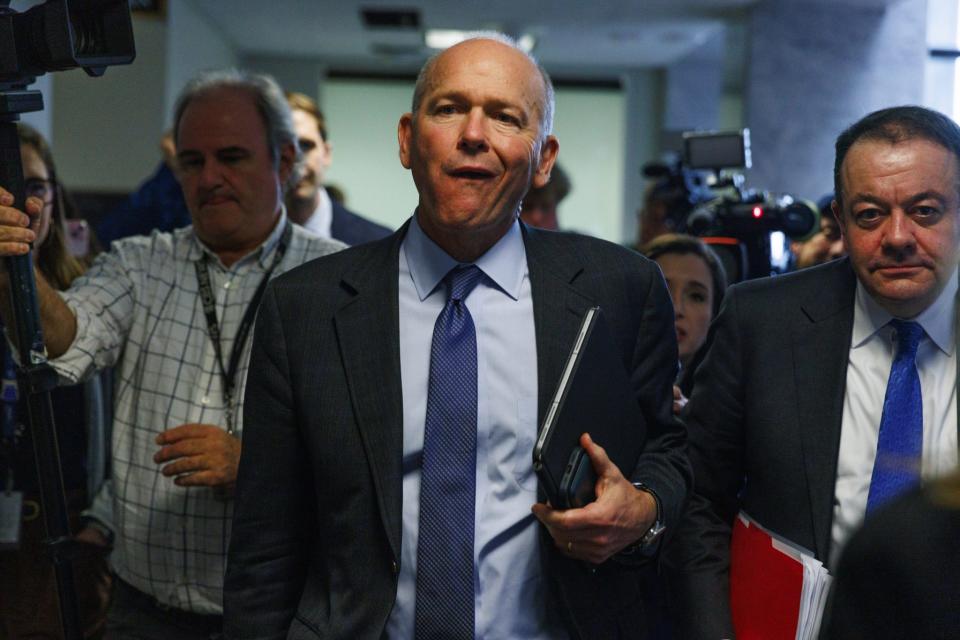In the understatement of 2024 so far, Boeing’s CEO says his company has been ‘far from perfect’ after a litany of safety snafus

Boeing’s year started with a disaster and continued to get more turbulent. Since a door plug on a 737 Max 9 ripped off the plane midflight in early January, forcing an emergency landing, the company has been publicly shredded by regulators, Congress, and airline passengers seeking answers.
That outrage has only mounted as whistleblower claims have emerged alleging a culture of mismanagement that discourages employees from raising safety concerns. This follows Boeing’s previous pledges to redouble its focus on safety and aircraft quality after two fatal crashes in 2018 and 2019 killed 346 passengers.
But a statement Boeing CEO Dave Calhoun—who took over after the crashes in 2020—plans to give in front of the U.S. Senate today doesn’t quite capture the magnitude of the calamity.
"Much has been said about Boeing’s culture. We’ve heard those concerns loud and clear. Our culture is far from perfect, but we are taking action and making progress," Calhoun will tell the Senate Permanent Subcommittee on Investigations, according to his statement obtained by Reuters. "I know full well that this is an industry where we simply must get it right, every time."
The Senate subcommittee hearing entitled “Boeing’s broken safety culture” is the first time Calhoun will testify publicly on the litany of safety and culture issues at the company, and it may be the only time he does so. The CEO announced in March that he would step down by the end of the year.
For months, scrutiny of the aircraft manufacturer has been fueled by a string of whistleblowers who have outlined the company’s failure to address safety issues. At a previous Senate hearing in April, quality engineer Sam Salehpour told lawmakers that over the course of three years he repeatedly tried to raise safety concerns at Boeing but was told by higher-ups not to create delays, and “frankly, to shut up.”
Just this morning, the subcommittee released new information from a Boeing quality inspector who alleged that the planemaker mishandled and lost track of hundreds of faulty parts which may have ended up on 737 Max planes.
Calhoun’s prepared remarks ahead of today’s hearing deny that Boeing has discouraged safety feedback from employees.
“We are committed to making sure every employee feels empowered to speak up if there is a problem,” his remarks state. “We also have strict policies in place to prohibit retaliation against employees who come forward. It is our job to listen, regardless of how we obtain feedback, and handle it with the seriousness it deserves.”
The investigation by Congress may not be the company’s biggest problem with the federal government. In May, the Department of Justice told a federal judge that Boeing had violated a 2021 settlement by failing to make promised changes to prevent violations of federal anti-fraud provisions and is now facing criminal charges.
The settlement was related to the two plane crashes involving 737 Max planes—one in Indonesia in 2018, and another in Ethiopia in 2019—that resulted in the deaths of hundreds of people.
Calhoun’s planned remarks for today’s hearing begin with an apology to the family members of the victims, which occurred during the previous CEO’s tenure.
“We are deeply sorry for your losses,” he’ll say in his opening comments. “Nothing is more important than the safety of the people who step on board our airplanes. Every day we seek to honor the memory of those lost.”
The hearing is scheduled to begin at 2 p.m. Eastern time.
This story was originally featured on Fortune.com

 Yahoo Finance
Yahoo Finance 